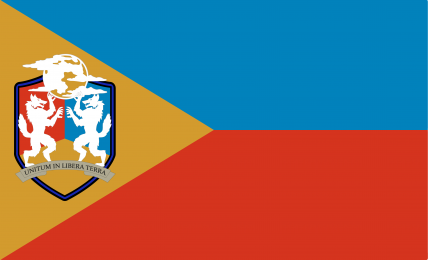
Advertisement

![]() by New Freedomstan » Tue Mar 19, 2019 6:03 am
by New Freedomstan » Tue Mar 19, 2019 6:03 am

![]() by Chuporosa » Tue Mar 19, 2019 6:09 am
by Chuporosa » Tue Mar 19, 2019 6:09 am
BREAKING NEWS: The period known as the Year of a dozen Emperors has concluded with the de Burgo dynasty ascending to the Imperial throne | Emperor John de Burgo has formally converted to Roman Catholicism

![]() by Molwanija » Tue Mar 19, 2019 2:17 pm
by Molwanija » Tue Mar 19, 2019 2:17 pm

![]() by New Wolvers » Tue Mar 19, 2019 3:19 pm
by New Wolvers » Tue Mar 19, 2019 3:19 pm

![]() by Batea del Nord » Thu Mar 21, 2019 4:36 am
by Batea del Nord » Thu Mar 21, 2019 4:36 am

![]() by Sebourg » Thu Mar 28, 2019 3:17 pm
by Sebourg » Thu Mar 28, 2019 3:17 pm

![]() by Fishy Apples » Fri Mar 29, 2019 3:17 am
by Fishy Apples » Fri Mar 29, 2019 3:17 am

![]() by SaederKrupp » Sat Mar 30, 2019 1:24 am
by SaederKrupp » Sat Mar 30, 2019 1:24 am

![]() by American Union of States » Sun Apr 07, 2019 8:36 pm
by American Union of States » Sun Apr 07, 2019 8:36 pm

![]() by Wawakanatote » Sun Apr 07, 2019 10:12 pm
by Wawakanatote » Sun Apr 07, 2019 10:12 pm
OOC Factbook
Pro: Marxism-Leninism
Anti: Capitalism, Fascism
We do not exist under communism, but under the
primary stage of socialist development (nep/state capitalism)
Please adjust accordingly
Full Nation Name: Supranational Union of Socialist Republics
Government: Federal Intergovernmental P&E Union
Political Leaders: C.Song Liyuan, V.C.Lev Bronshtein
National Anthem: "Hymn of the Union"

![]() by Narobe » Mon Apr 08, 2019 1:43 pm
by Narobe » Mon Apr 08, 2019 1:43 pm

![]() by Germanyt » Mon Apr 08, 2019 1:54 pm
by Germanyt » Mon Apr 08, 2019 1:54 pm

![]() by Griemvarant » Mon Apr 08, 2019 2:05 pm
by Griemvarant » Mon Apr 08, 2019 2:05 pm

![]() by Bisim » Mon Apr 08, 2019 2:28 pm
by Bisim » Mon Apr 08, 2019 2:28 pm

![]() by Wohlstantia » Mon Apr 08, 2019 2:40 pm
by Wohlstantia » Mon Apr 08, 2019 2:40 pm


![]() by Evergar » Tue Jul 27, 2021 6:12 pm
by Evergar » Tue Jul 27, 2021 6:12 pm

![]() by Carstvo Jugoslavije » Wed Jul 28, 2021 7:42 pm
by Carstvo Jugoslavije » Wed Jul 28, 2021 7:42 pm

![]() by Laka Strolistandiler » Fri Jul 30, 2021 1:04 am
by Laka Strolistandiler » Fri Jul 30, 2021 1:04 am
I reserve the right to /stillme any one-liners if my post is at least two lines long

![]() by Rhim Flavezztowland » Fri Jul 30, 2021 1:23 am
by Rhim Flavezztowland » Fri Jul 30, 2021 1:23 am

![]() by Libertia-Columbia » Fri Jul 30, 2021 1:22 pm
by Libertia-Columbia » Fri Jul 30, 2021 1:22 pm

![]() by Holy Federation of Stars » Fri Jul 30, 2021 7:28 pm
by Holy Federation of Stars » Fri Jul 30, 2021 7:28 pm

![]() by Escalia » Sat Jul 31, 2021 3:55 pm
by Escalia » Sat Jul 31, 2021 3:55 pm

![]() by Fratanica » Sat Jul 31, 2021 4:37 pm
by Fratanica » Sat Jul 31, 2021 4:37 pm

![]() by Cosnicu » Sun Aug 01, 2021 10:22 pm
by Cosnicu » Sun Aug 01, 2021 10:22 pm
Advertisement
Return to Factbooks and National Information
Advertisement